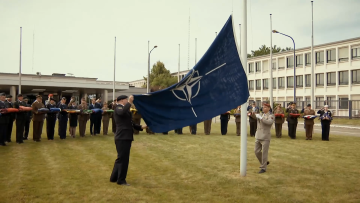NATO is adjusting its strategy to effectively respond to new threats from Russia and China, particularly in the areas of cyber and energy security.
As noted by The Wall Street Journal, sabotage, hacking, and terrorist attacks in the U.S. and Europe are becoming commonplace. NATO Secretary General Mark Rutte and leaders of NATO member countries emphasize the need to strengthen cooperation and develop response plans before these attacks reach a level that threatens the peacekeeping operations of the North Atlantic Alliance. Rutte pointed out that Russia poses the greatest and most immediate security threat due to its active use of hybrid attacks in response to Western support for Ukrainian resistance.

"Russia is indeed ramping up its efforts. NATO must ensure deterrence and guarantee that the Russians do not attempt something very risky," said the NATO Secretary General.
He also mentioned that NATO is enhancing security measures, particularly through intelligence sharing, conducting exercises, and protecting critical infrastructure. A new response plan for hybrid attacks is already being developed, which is set to be adopted at a meeting next year in The Hague.
In May, NATO established a Maritime Security Center to protect critical underwater infrastructure, and in July, a Cyber Defense Center was opened, which will be based at NATO headquarters in Belgium. This center will bring together military, civilian experts, and industry representatives to combat new threats.

"Russia's use of hybrid tactics, honed over decades since the Cold War, is likely to increase even further in the coming years, partly because its conventional warfare in Ukraine has recently become very costly," says Seth Jones, a political scientist and defense expert at the Center for Strategic and International Studies.
Source: wsj.
Politeka also reported on this.